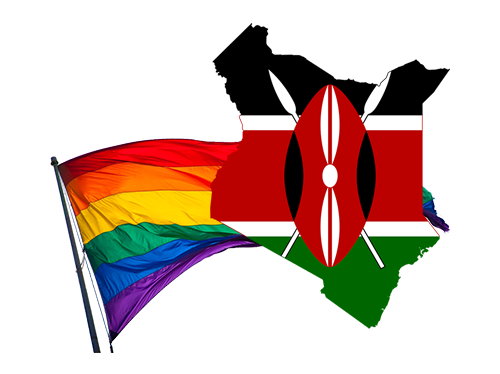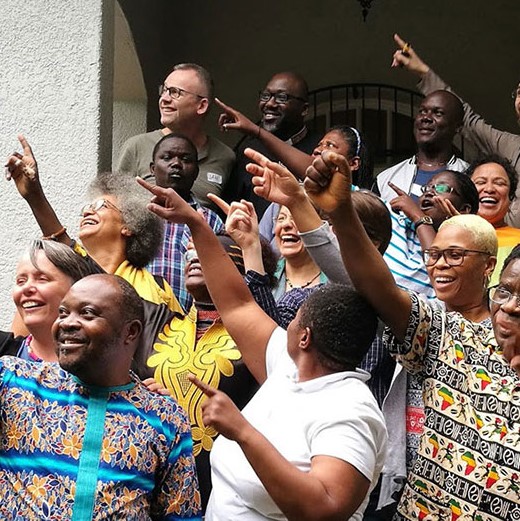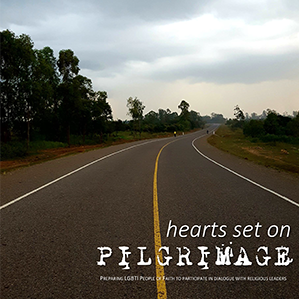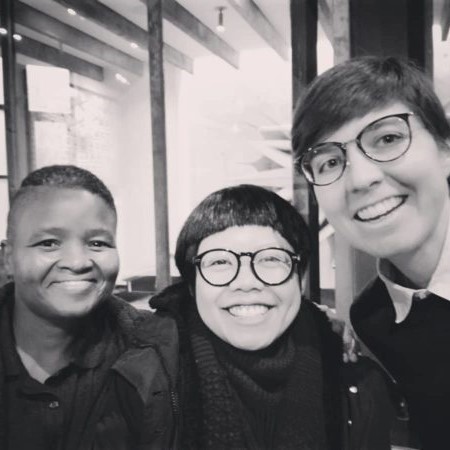[row] [col width=”2/3″]  For Immediate Release.
For Immediate Release.
On Friday 24 May the Kenyan high court ruled against the petition to repeal provisions 162 and 165 of the Kenyan Penal Code.
Today we stand in solidarity with LGBTIQ Kenyans after a three judge panel ruled against repealing provisions 162 and 165 which criminalise same sex conduct. The Court had been asked to review the constitutionality of Section 162 of the Penal Code, which provides for criminal sanctions to be imposed on individuals convicted of engaging in or permitting someone else to engage with them in ‘carnal acts against the order of nature’ – a definition which includes any sex outside of coitus, as well as section 165 of the Penal Code which makes provision for sanctions against male consensual same-sex sexual conduct.
The Court’s decision, on Friday 24th May, declared a lack of evidence of extensive discrimination on the basis of sexual orientation and gender identity, throughout the country. We believe this decision to have been made in total disregard of concrete evidence.
Kenya’s constitution outlaws discrimination on a number of grounds, including religion, belief and culture and makes provision for the right to privacy and dignity. It has long been argued therefore that these sections of the Penal Code breach Kenya’s human rights obligations. Their implementation contributes to violence and discrimination against Kenya’s lesbian, gay, bisexual and transgender community. In addition, it has repeatedly been pointed out that the Penal Code as it stands is a hangover from pre-independence Kenya and thus a British colonial artefact.
Conservative religious actors in this space use the Bible as a blunt instrument, making reference time and time again to the story of Sodom and Gomorrah to support divine judgement and opposition to homosexuality. Yet the Bible presents different interpretations and reasons for the destruction of the two cities. For example, Jeremiah, Ezekiel and Jesus present vastly different interpretations none of which mention sex or homosexuality. In Jeremiah 23:14 the sins linked to Sodom and Gomorrah are adultery, lies, evil doing; Ezekiel 16:49 indicates that the sins of Sodom are pride, excess of food, prosperity and not aiding the poor and needy; and Jesus in Matthew 10:1-15 refers to Sodom and Gomorrah (v 15) in the context of those who reject or refuse to receive disciples and their message. (see The Johannesburg Declaration, 2018 ).
It is clear that even within the bible there are different interpretations of events and laws, and that literal readings of the text can ignore or miss much of what makes the Bible a unique text. In contrast contextual and liberation methods of reading the Bible bring together in mutual critical dialogue the contexts of the bible with contemporary society and scholarship, which is particularly important as decolonial discourses remind us that African traditions and knowledge must be protected from the hegemony of western knowledge and western forms of Christianity.
Specifically, in this case the following elements should be noted:
1. The claim that sexual diversity is “un-African” is refuted by well-researched traditional practices in some communities such as women having female husbands and men having male wives; and African traditional religious leaders who are inhabited by an opposite sex ancestor and therefore exhibit characteristics of that sex, including their choice of intimate partner.
2. That in the African context, human sexuality has generally been conceived as a divine life-affirming gift which holistically embraces diverse human relationships and sexual expressions that lead to sexual pleasure and renewal as well as, in some cases, procreation.
3. In African traditions, sexual difference has never been a reason for exclusion from family and community life. Punishing people for sexual difference by denying them the right to full participation in society is a colonial notion being advanced by the extreme religious right and those they have co-opted, and is distinctly un-African. (see The Johannesburg Declaration).
Coming so soon after the CAS ruling against the appeal by Caster Semenya, we are worried and dismayed at the emerging trend that seeks to reinforce the warped labelling of LGBTIQ as not normal or natural. This is in itself not just discriminating but above all an erosion of dignity by the very instruments that should be securing it. It develops a very bad jurisprudence that could soon be used against other groups using all manner of excuses such as religion, skin colour, gender etc. This must be resisted by all.
Our African faith and cultural traditions have long included the understanding that all human beings are created in the image of God, and have inherent dignity, and that we have a duty to care for the vulnerable and marginalized in our societies, communities and families. This commitment to care for others is indeed reflected in the Kenyan constitution with its provisions outlawing discrimination against people on a multiplicity of grounds, and we therefore regret the failure of the high court to honour these constitutional commitments.
Beloved siblings in Kenya, we are praying for you, and with you, for the coming of that day when the court upholds your human rights and repeals provisions 162 and 165. We know that day will come, even if it is not today.
In solidarity,
The Global Interfaith Network for People of All Sexes, Sexual Orientations, Gender Identities and Expressions, South Africa
PEMA Kenya, Kenya
Nyanza Rift Valley Western Kenya Network (NYARWEK), Kenya
Pembizo Christian Council, Kenya
Cosmopolitan Affirming Church community, Kenya
House of Rainbow, Nigeria, Botswana, Lesotho, Uganda, Ghana
Motsau Motsau, South Africa
Rev Nokuthula Dhladhla, South Africa
Arc en Ciel, Senegal
The Thami Dish Foundation, South Africa
Gay and Lesbian Network, Pietermaritzburg, South Africa
CCI-Network / Al-Ghurbaah Foundation, South Africa
Micah Project, South Africa
Pacific Human Rights Initiative, Samoa
Rev Judith Kotze, South Africa
Pan Africa ILGA, Africa
Tulinam, Namibia
Dr Yvette Abrahams, South Africa
Dr Nontando Hadebe, Convenor Southern African Chapter of the Circle of Concerned African Women Theologians
The Desmond Tutu Centre for Religion and Social Justice, South Africa
Ngozi Nwosu-Juba, Nigeria
Dee Malelu, Lesotho
FEUDJIO Yannick Joël , Cameroon
Julio Guedes, Brazil
Rudy Cupido , South Africa
Peter Odongo, Kenya
Refiloe Masaoana, Lesotho
Levites Initiative for Freedom and Enlightenment, Nigeria
Sanjay Sharma, Nepal
Small Luk, Hong Kong
David Austin, UK
Au LAU Urikhobs, Namibia
Stewart Langenhoven, Namibia
Russian LGBT Network, Russia
Planet Ally, Hong Kong
Jan Bjarne Sodal, Norway
Karin More, Canada
Sean Donohue, Canada
Jennifer Reed, Canada
Ernestine Draghoender, Namibia
Nico Linggi Pongmasangka , Indonesia
(Rev.) Teboho Klaas, South Africa
Jane Elizabeth Galvin, Australia
Graeme Deas , South Africa
Anthony Bethke, South Africa
Soulforce Soulforce, United States
Jacques Van Rensburg, South Africa
Irene Schwyn , Switzerland
Steve Letsike, South Africa
Jasper Van Haaster, Netherlands
Stephen Leahy , Australia
Debbi Berkovic, Australia
Phoebe Gordon-Allsopp, AU
Thuli Mjwara, South Africa
Rachel Gilmore, Australia
Sally Goldner, Australia
Lyn van Rooyen, South Africa
Justine van Rooyen, South Africa
Pierre Buckley, South Africa
 Inclusive and Affirming Ministries, South Africa
Inclusive and Affirming Ministries, South Africa
[/col] [col width=”1/3″] [emailpetition id=”4″][/col] [/row]





